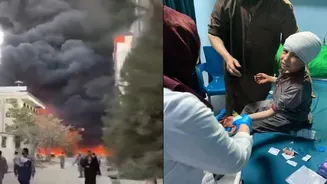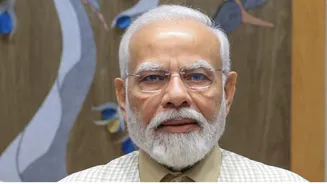At least 27 Afghan civilians — including 14 children, six women and seven men — have been killed in the past week in what local Afghan sources describe as unprovoked airstrikes and cross-border attacks
by Pakistan. The deadliest assault occurred on October 15, when Pakistani fighter jets reportedly bombed civilian areas in Kabul and Kandahar, killing 17 people, among them nine children, and injuring 55 others, according to local aid groups and Afghan media reports.
The United Nations Assistance Mission in Afghanistan (UNAMA) has condemned the escalating violence and urged Pakistan to immediately cease targeting civilian areas. In a statement released on Wednesday, UNAMA said it was “deeply concerned over the mounting civilian casualties, including women and children, resulting from cross-border hostilities” and called for “an immediate end to all military actions that endanger civilian lives.”
Civilian Zones Under Fire
Afghan officials and independent observers have alleged that Pakistani jets struck residential complexes, schools and hospitals in Kabul, Kandahar, Khost, Jalalabad, and Nangarhar. The Taliban’s Ministry of Interior Affairs has said the bombings were “indiscriminate” and “in violation of international humanitarian law,” adding that entire neighborhoods were flattened in parts of Kandahar.
Local sources told TOLOnews and Afghanistan Times that at least two journalists were among the casualties. Abdul Ghafour Abid, a Kabul-based reporter, was killed, while Tawab Arman was critically injured after an airstrike hit a residential block where they were sheltering. Afghan media associations have condemned the attacks as “a direct assault on press freedom and civilian safety.”
A senior source within the Taliban’s health ministry, quoted by Kabul News Network, said hospitals in Kabul and Kandahar are now facing an acute shortage of medicines, surgical equipment, and emergency staff following repeated strikes and the influx of wounded civilians. “We are struggling to treat even the most critical patients,” the source said, adding that several medical warehouses were destroyed in the bombings.
UN Calls for Restraint, Civilians Bear the Cost
UNAMA said it has “recorded scores of civilians killed and injured in recent fighting, though the full scale of harm is still being assessed.” The mission urged both sides — Pakistan and the Taliban administration — to respect international law and protect civilian populations.
“The humanitarian situation in Afghanistan was already dire. These airstrikes have made it worse,” said a UN humanitarian officer based in Kabul, speaking on condition of anonymity. “Children are among the dead, families have been displaced, and hospitals are overwhelmed. This cycle of violence must stop.”
Human rights groups have also condemned Pakistan’s actions. “Deliberately targeting civilian infrastructure — including hospitals and schools — constitutes a war crime under international law,” a regional coordinator for Human Rights Watch told reporters, urging an independent investigation into the attacks.
Pakistan’s Silence and Afghan Refugees’ Plight
While Islamabad has not officially commented on the allegations of civilian bombings, tensions between Pakistan and the Taliban regime have sharply escalated in recent weeks. Pakistan accuses the Afghan Taliban of harbouring Tehreek-e-Taliban Pakistan (TTP) militants who have launched cross-border attacks on Pakistani security forces. Afghan authorities, in turn, accuse Pakistan of using that pretext to justify unprovoked airstrikes on civilian settlements.
As the conflict intensifies, Afghan refugees in Pakistan are bearing a separate humanitarian burden. Multiple reports from Islamabad and Rawalpindi indicate that Afghan refugees are being denied medical treatment and subjected to harassment and arbitrary detention.
A staff member at the Pakistan Institute of Medical Sciences (PIMS) in Islamabad told local journalists, on condition of anonymity, that police have issued strict directives forbidding hospitals from treating Afghan refugees — even those with valid registration documents. “We were told to inform police immediately if any Afghan refugee, especially a young woman or girl, comes for treatment or registration,” the employee alleged.
The same source added that several young Afghan women and girls have been detained after visiting hospitals for basic healthcare or documentation. “Harassment against female Afghan refugees has reached its peak,” the employee said.
Health Crisis and Fear Among Refugees
According to the Human Rights Commission of Pakistan (HRCP), Afghan refugees — particularly women, children, and pregnant women — are increasingly avoiding hospitals and clinics due to fear of arrest or abuse. Following recent border clashes, HRCP said, there has been a “sharp increase” in reports of forced deportations, denial of medical aid, and police raids in Islamabad and Rawalpindi.
“Within one week, over 200 cases of harassment and denial of medical care have been reported,” HRCP noted in a briefing. The commission described the situation as “a violation of human dignity” and a breach of Pakistan’s obligations under both its constitution and international human rights conventions. It warned that deporting Afghan women and girls back to Taliban-controlled Afghanistan could expose them to “gender-based persecution and gender apartheid.”
Sources in Islamabad Police have also confirmed that guidelines were issued to all government and private hospitals not to facilitate Afghan refugees. “Police personnel are stationed at major hospitals to ensure compliance,” a police official admitted to Dawn News, without elaborating further.
A Growing Humanitarian Catastrophe
Humanitarian organisations warn that the dual crisis — airstrikes inside Afghanistan and deteriorating refugee conditions in Pakistan — threatens to create a new regional emergency. The UN Office for the Coordination of Humanitarian Affairs (OCHA) said that renewed hostilities and restrictions on refugees could push thousands more Afghans into displacement and deepen food and health insecurity across the border.
“Afghan civilians are paying the price for political and military confrontations between two governments,” said an aid worker with an international NGO in Kabul. “These are people who have already endured decades of war. What they need is safety, not more suffering.”














